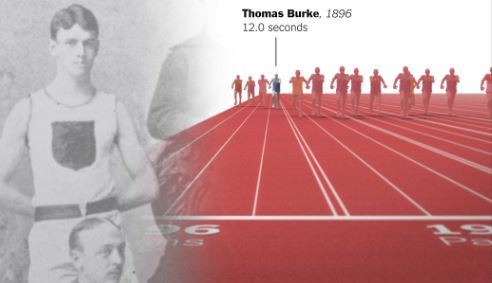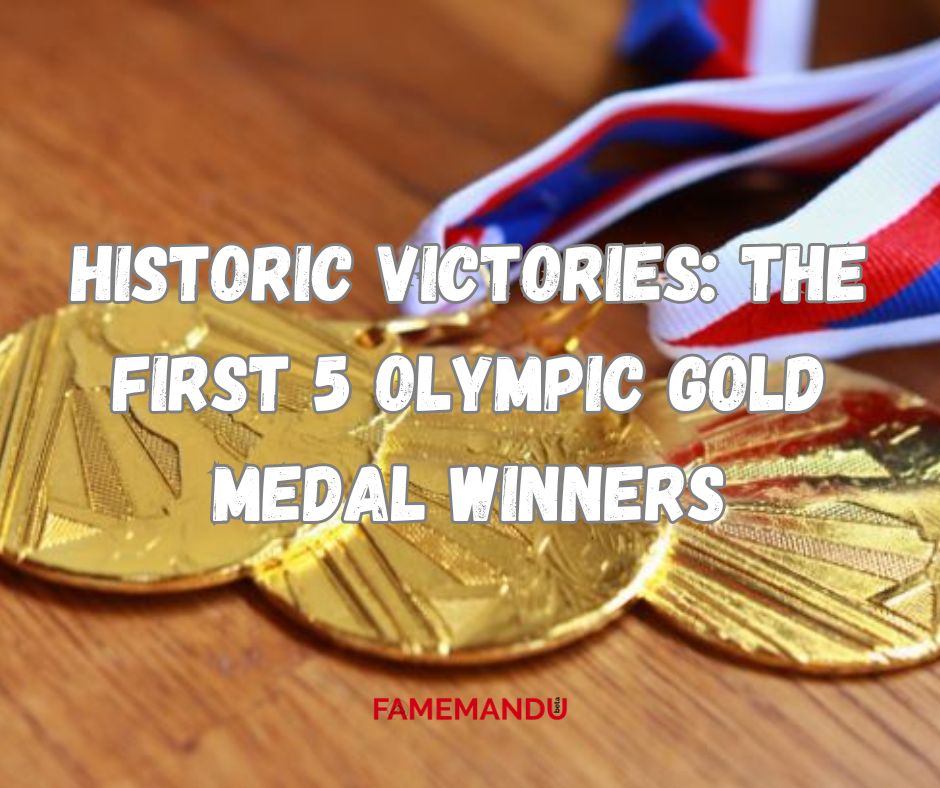1.James B. Connolly (USA) – Men’s Triple Jump (Athletics) – 1896
James B. Connolly, representing the United States, made history as the first Olympic champion in the triple jump event at the 1896 Athens Summer Olympics. Born in 1868, Connolly was a talented athlete known for his prowess in track and field. Competing in the inaugural modern Olympic Games, he seized the gold medal in the triple jump with a leap of 13.71 meters (approximately 44 feet, 11 inches). Connolly’s victory marked a significant milestone in Olympic history, symbolizing the revival of the ancient Greek tradition of athletic competition. His achievement helped lay the foundation for the modern Olympic movement, inspiring generations of athletes to pursue excellence on the international stage. Connolly’s triumph remains a testament to the enduring spirit of athleticism and sportsmanship celebrated by the Olympic Games.
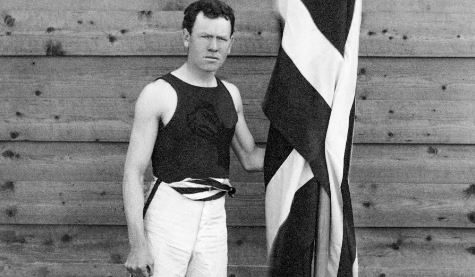
2.Robert Garrett (USA) – Men’s Discus Throw (Athletics) – 1896
At the Summer Olympics in Athens in 1896, American athlete Robert Garrett made Olympic history by winning the gold medal in the discus throw competition. Garrett, who was born in 1875, excelled in track and field and was renowned for his remarkable throwing skills. Garrett proved his mettle in the first modern Olympic Games, out-throwing his opponents with a powerful throw. In addition to making history as the first discus throw Olympic champion, his triumph helped the United States place highly in the competition. Garrett’s accomplishment represented the ideals of sportsmanship and athletic brilliance, making a lasting impression on future generations of Olympic historians.
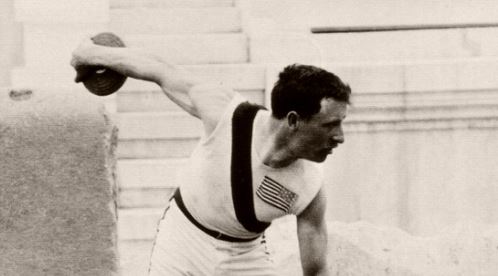
3.Spiridon Louis (Greece) – Men’s Marathon (Athletics) – 1896
Greek athlete Spiridon Louis made Olympic history in the 1896 Summer Olympics in Athens by winning the men’s marathon. Louis, a modest water carrier born in 1873, had no prior competitive experience. Louis captured the nation’s attention when he competed in the first-ever modern Olympic Games and won the marathon, a competition that celebrated Pheidippides’ fabled march from Marathon to Athens. Louis overcame fierce competition and sweltering heat to cross the finish line first, greeting triumphant spectators in the Panathenaic Stadium. His triumph stoked patriotism and represented Greece’s comeback to international prominence. The incredible feat accomplished by Spiridon Louis continues to stand as a testament to bravery, tenacity, and the Olympic spirit.
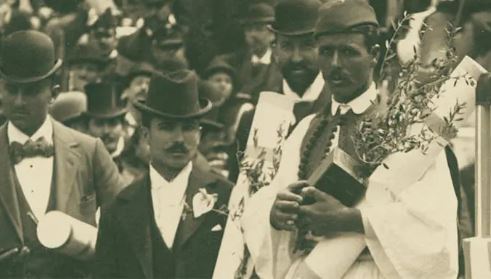
4.Edwin Flack (Australia) – Men’s 800 meters and 1500 meters (Athletics) – 1896
Australian Edwin Flack created history in the summer Olympics of 1896 in Athens, Greece, when he won gold in the men’s 800 and 1500 meters. Flack, a gifted middle-distance runner noted for his speed and stamina, was born in 1873. Flack competed in the first modern Olympic Games and showed tremendous skill, winning both races with outstanding performances. His triumphs in the 800 and 1500 meters races cemented his status as one of the most notable athletes of the Games and elevated Australian track and field on the global arena. The Olympic movement celebrated the principles of sportsmanship and competition, and Flack’s accomplishments served as an inspiration to his fellow countrymen. His legacy highlights the lasting attraction of Olympic achievement and inspires competitors all across the world.
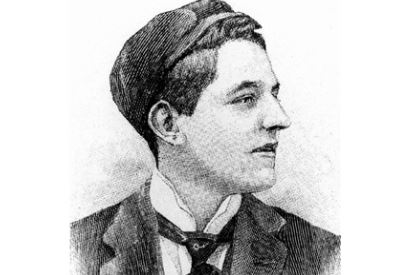
5.Thomas Burke (USA) – Men’s 100 meters and 400 meters (Athletics) – 1896
Thomas Burke, representing the United States, left an indelible mark on Olympic history at the 1896 Athens Summer Games by triumphing in both the men’s 100 meters and 400 meters events. Born in 1875, Burke was a sprinter renowned for his speed and athleticism. Competing in the inaugural modern Olympic Games, Burke showcased his exceptional talent and determination, clinching gold medals in both races. His victories in the 100 meters and 400 meters events underscored his dominance on the track and solidified his status as one of the premier sprinters of his time. Burke’s achievements not only brought glory to American athletics but also exemplified the spirit of Olympic competition and sportsmanship. His legacy continues to inspire athletes around the world, serving as a testament to the enduring appeal of Olympic excellence.
